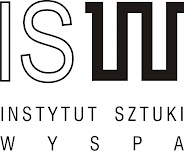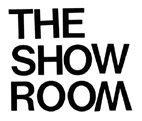Local scene in Kurdistan has a long tradition in working in self-didactic artistic groups, fostering various forms of relations within art scene and with the public. Some individuals involved in the project emerged from these forms of organization of artistic life. So the decision of having a workshop and open, quasi-exhibition format, with temporary forms of display and short-term interventions is based on local expertise. Workshops and reading groups are more familiar ton the local practice, more recognizable and thus more appropriate. “Estrangement“ is seeking contextual relevance for this particular surrounding. Although, the exhibition as a format is known to the scene, the tradition of the white cube is unfamiliar to the existing relations between the artist and the public. Art scene is not yet “professionalized”, there is no art market and the widespread commercial and intellectual circulation of artistic discourse is absent. The relation within the scene is still horizontal and apparently the form of event is more relevant that staged situation of exhibition. There is also no „public“ in traditional sense and „visibility“ as an outcome of marketized startegy unnecessarily would be succesful. The Estrangement Project is not aimed to change this situation, but rather embrace it. That is why, in contrast to original intentions, we are trying to avoid any kind of "show" which could only affect the intention of approaching local issues with contextual relevance.
We find important to collaborate with the scene in the region, where local political situation is very much inflicted by the interest of dominant political players. Kurdistan is recently getting a slight economic balance and relative safety in comparison to other parts of Iraq. At the same time probably the biggest nation without state representation holding strong commitment to its own culture and languages. It is carrying a lot of need of dealing with memory and history matters, as a former subject of genocide during times of Saddam (Anfal).
The country and the region is dealing intensely with political changes including the raise of nationalism (in reaction to Turkish, Persian nad Arab nationalisms in the region) along with economic growth and the most urgent and emergent issue of Turkish invasion. There is a lot of current issues having to do with what previous Iraqi government has left, such as Arabization of Kurdish cities for 30 years and legal and economic implication of that.
Kurdistan and its city Suleimania give a local context to Estrangement, but are not limited to this experience. Estrangement dos not want to follow identitarian strategies. It embraces locality abut also opens up towards what can be produced basides it. It involves the work of artist from other, European and non-European descent and to filter the issues that emerged locally through other regional and international experience, without giving a priority to any of them. Suleimania, Kurdish city with strong cultural scene will be our field of work, separating us from the matter of "traditional exhibition making in Iraq"
Similarly “cultural exchange” is not enough and is bringing particular rhetoric of reciprocal merchandising of cultural goods. Certainly for purpose the words such as exchange are not being used here, because they lead to particular and formerly know patterns of cultural geographies and strategies of administration of thoughts. We rather seek free-float influence that unnecessary carry the weight of exchange. Estrangement wants to happen in spaces in between, in the cracks and in embrace. If we go there with our preoccupations, there will not be enough space for new experiences.
The project is trying to do not carry the vision of ready-to-go solutions. It is a performative, open-ended situation, where productivity of this particular encounter will be given a space. Similarly, quasi-exhibition (preliminary term) is a processual activity in which willing participants of the workshop will be encouraged to make their own intervention in relation to situation as well as in reaction to video works and readings brought by the guests to initiate the discussion and to cause interventions, that can be wall painting, performance, action, new video or any other unpredictable reaction. The entire process will be documented. The excerpts will be put on the project blog. Anyone can watch it through the web, so the dissemination will happen both within group of the participants and throughout international telecommunication network. The materials will we a resource for the further publication.
The Estrangement team believes that it will also have a strong impact on future quasi-exhibits in Gdansk and Wolfsburg, where modality, mutation and process will be a part of the event, similarly to situation in Suleimania. So it will be more ephemeral regardless of the materiality of particular works.
Part of the project though must remain indescribable, because if forced already into the expected format of „visibility“ will lose the character of open-ended situation, which we find the biggest advantage of the project. We do not want to predict and decide today, because this would mean to stubbornly insist on what we grew up from and impose our expectations over situation of the country we have never visited and artist we do not know. We seek the experience without formatting, because we would end with the same whilst looking for prospectus new event.
Today, we cannot predict into, as this affect by its managerial grandiosity the delicacy of the idea of relying on the productivity of the event among group of individuals rather than the dispersion of objects in the gallery space. Estrangement wants the outcome to be produced by the particular encounter and to do not plan the predictable format and content. And even the end might turn to be against our intentions; we do not want to imply it and to agree on them now.
Putting the intentions to the context given by Judith Butler, we are aiming “..to reinvigorate the intellectual projects of critique, of questioning, of coming to understand difficulties and demands of cultural translation and dissent..”
A multi-stage international project initiated by curator Aneta Szylak and artist Hiwa K
When you take the first step towards the unknown, you are engulfed by the darkness of uncertainty. Co-existence is possible only in the face of the unrecognised. The unknown language is a tangled mass through which you penetrate with despair. It is a structure of sense and nonsense, an architecture of traps and a source of endless uncertainty. The story you tell contains a record of fear and hope.
Aneta Szylak and Hiwa K., fragment taken from "The Darkness Wounded" published at www.przemo-wojciechowski.com
Estrangement shows itself precisely in the elimination of distance between people.
Theodor Adorno
But we are meaning in the sense that we are the element in which significations can be produced and circulate.
Jean-Luc Nancy
The concept of Estrangement developed through a series of discussions and collaborative projects between Iraqi artist Hiwa K. and Polish curator Aneta Szylak as an attempt to create a form for mutual translation and collaborative work that is not restricted to one cultural format.
Aneta Szylak and Hiwa K., fragment taken from "The Darkness Wounded" published at www.przemo-wojciechowski.com
Estrangement shows itself precisely in the elimination of distance between people.
Theodor Adorno
But we are meaning in the sense that we are the element in which significations can be produced and circulate.
Jean-Luc Nancy
The concept of Estrangement developed through a series of discussions and collaborative projects between Iraqi artist Hiwa K. and Polish curator Aneta Szylak as an attempt to create a form for mutual translation and collaborative work that is not restricted to one cultural format.
Estrangement Team

Aneta Szylak, a curator and artist Hiwa K met in 2005 and collaborate since.
WHAT IS ESTRANGEMENT PROJECT?
Estrangement seeks to capture the tension between European cultures and what was once constructed as the ‘Orient’, investigated from different European cultural contexts of London, Gent and Gdansk, as well as Sulaimany and Hawler in Iraqi Kurdistan. While Europe and the Western world are not homogenous in cultural terms, there has often been an insistance on its coherence when confronting the invented face of an undefined enemy. While the West appears to deny having anything culturally in common with this reinvented ‘Other’, Estrangement attempts to find a way to reformulate these relations, and complicate them. Triggered by unfulfilled desire, loss and estrangement, and the fears, obsessions and denials that are produced through contemporary politics and its economic backgrounds – which both appear to be based on cultural constructions, and aimed at destroying them¬ – this project looks beyond simplistic strategies of representation, investigating how these cultures mirror, mimic and reflect one another; how they produce fictions, fragmented comprehensions, and hybridized understandings and misunderstandings. It points critically both at Occidentalism that formulates Europe as a normative concept, and at the legacies of colonialism, recognizing the historic entanglements in the imperial pasts of Britain, Belgium and Poland, and the traces of these in the make-up of these countries today. These questions do not have geographical borders, but rather cultural and psychological ones, thus the project searches for the zones of encounter that are not representative of cultures, but rather individual experiences.
Labels
Search This Blog
Followers


Institutional Project Grant
AMERICAN CENTER FOUNDATION
Partner in Sulaimany, Kurdistan, Northern Iraq

Contemporary Art Center Sulaimany
Research Grant
AMERICAN CENTER FOUNDATION
Estrangement Team and Friends
- Aneta Szylak
- Emily Pethick
- Hiwa K.
- Janna Graham
- Kit Hammonds
- Natasha Tebbs
- Vasif Kortun





